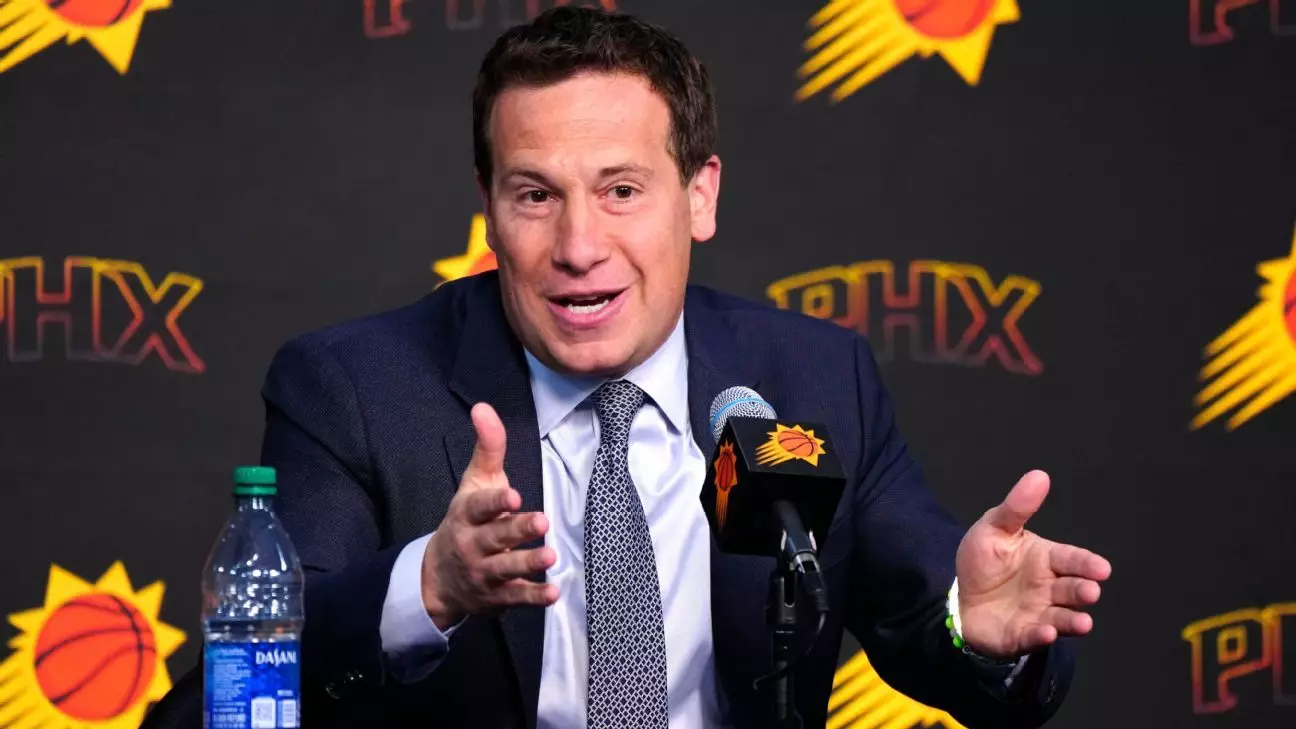In an era where traditional regional sports networks (RSNs) are struggling under the weight of cord-cutting and changing viewer preferences, the Phoenix Suns’ bold move to pivot away from conventional broadcasting models stands out as a game-changer. Their decision to walk away from a long-standing partnership with Diamond Sports and instead leverage free over-the-air television exemplifies a proactive approach that challenges industry norms. This isn’t merely a tactical shift but a strategic revolution that could redefine the financial and accessibility landscape of professional sports.
Rather than passively accepting dwindling revenues from RSNs, the Suns took control of their media destiny, showcasing a willingness to innovate and prioritize fan engagement over short-term profit. The success of this gamble, reflected in soaring local ratings and a dramatic increase in viewership among both basketball and WNBA audiences, indicates that the old model is no longer sustainable. It’s a stark reminder that in the modern media environment, accessibility and direct reach to fans can be far more valuable than traditional broadcast agreements that favor regional monopolies.
From Risk to Reward: The Power of Fan-Centric Strategies
The Suns’ decision was initially met with legal battles, notably a lawsuit from Diamond Sports, but the team’s resilience and commitment to fans paid off. By producing their own broadcasts and advocating for free access—going as far as distributing antennas—Phoenix demonstrated that operational independence can yield tangible benefits. This move not only preserved revenue but also expanded the team’s local footprint, driving an audience growth of over 100% during a period dominated by streaming and shifting media habits.
The broader implications are clear: embracing innovation in media rights can serve as a strategic shield against the vulnerabilities of RSN dependency. When teams make their games more accessible, they foster a stronger, more engaged community. The Suns and Mercury’s story offers a compelling blueprint for other franchises grappling with similar hurdles. By prioritizing fans’ convenience and expanding outreach through streaming platforms like Suns+, teams can build lasting loyalty that transcends traditional broadcasting constraints.
Implications for the Future of NBA Revenue and League Strategy
Despite the impressive gains, Phoenix’s stance highlights a crucial paradox within the NBA’s financial ecosystem. While the league secures a record-breaking $77 billion, over the next decade, the reliance on local TV contracts is undeniably weakening. As multiple teams face revenue reductions from their RSN deals—exemplified by the Knicks’ significant cut—NBA leadership confronts the urgent need for a diversified media strategy.
This evolution underscores a broader pivot towards over-the-air broadcasts, streaming platforms, and digital innovation. The league’s upcoming negotiations and policy discussions are now centered on creating flexible, scalable models that satisfy both the financial needs of teams and the viewing preferences of modern audiences. Phoenix’s success acts as a catalyst that could accelerate this transition, encouraging other franchises to explore similar avenues of direct-to-consumer distribution.
In essence, the Suns’ pioneering approach isn’t just a temporary fix; it signals a fundamental shift in how professional sports are monetized and experienced. It challenges the league to rethink its revenue paradigm, emphasizing adaptability, direct engagement, and fan-first strategies. For NBA teams navigating a rapidly changing media landscape, Phoenix’s experience provides a powerful case study: innovation and risk-taking, when executed thoughtfully, can unlock new pathways to growth and fan loyalty in an increasingly digital world.

